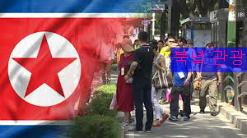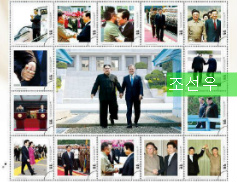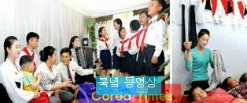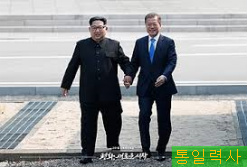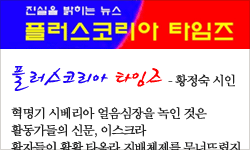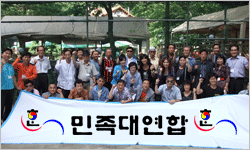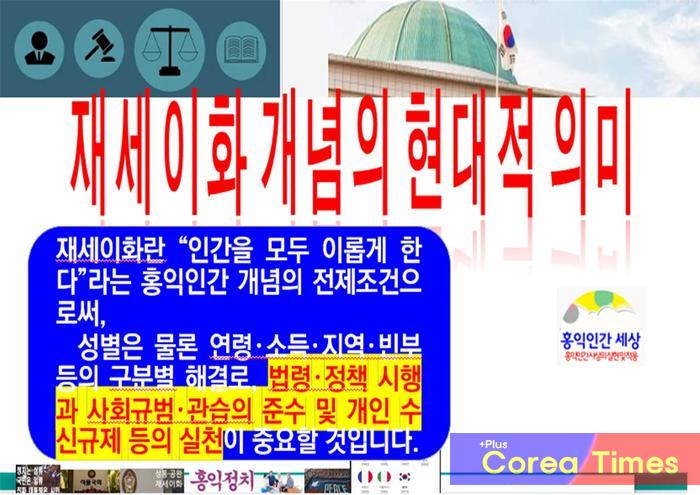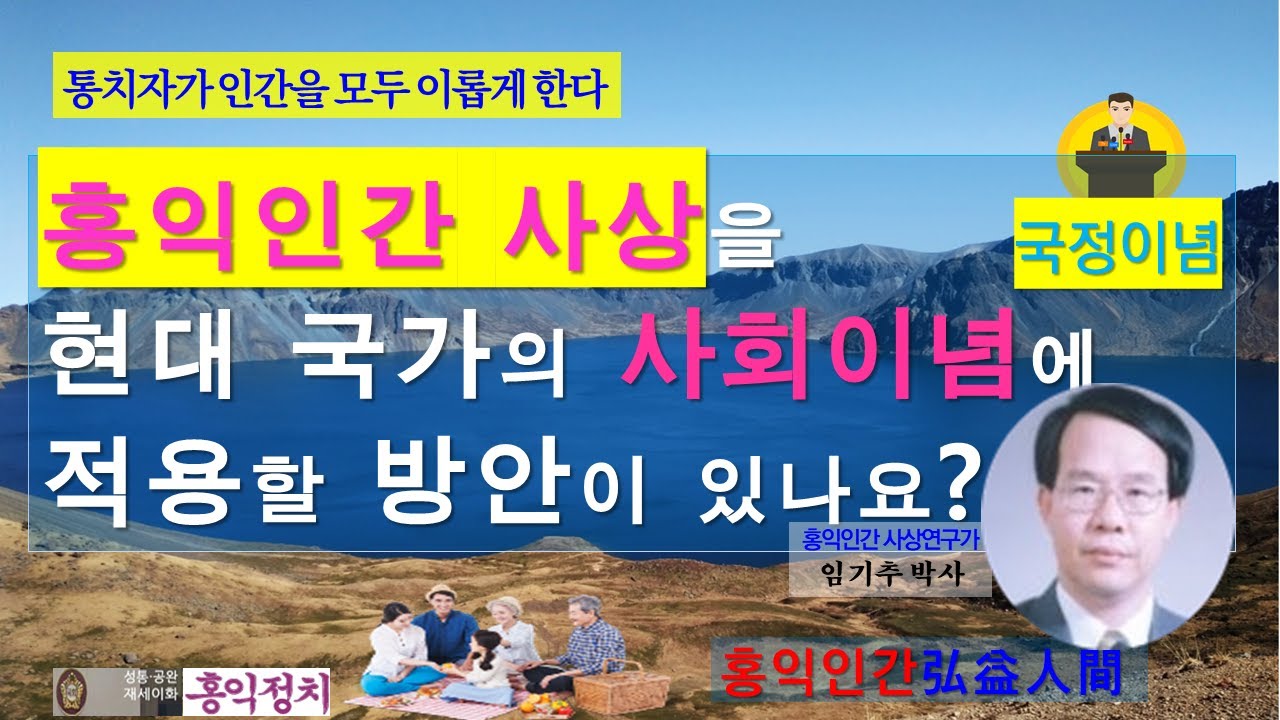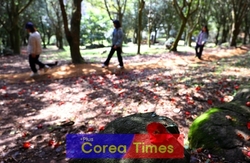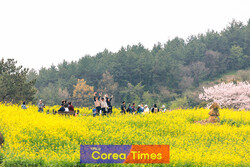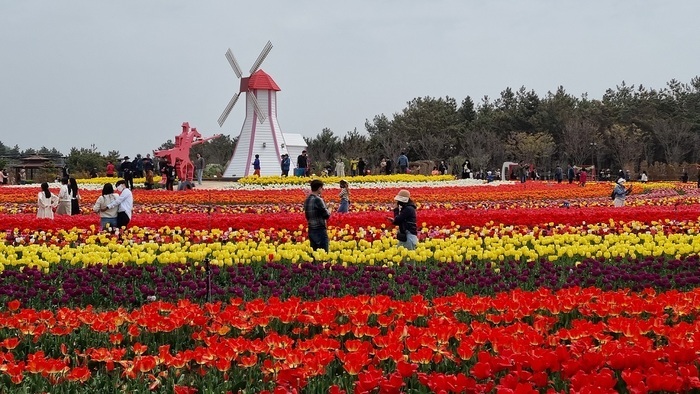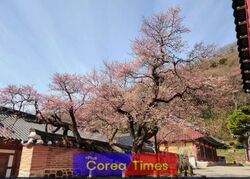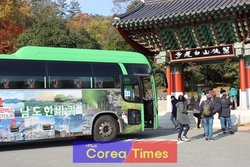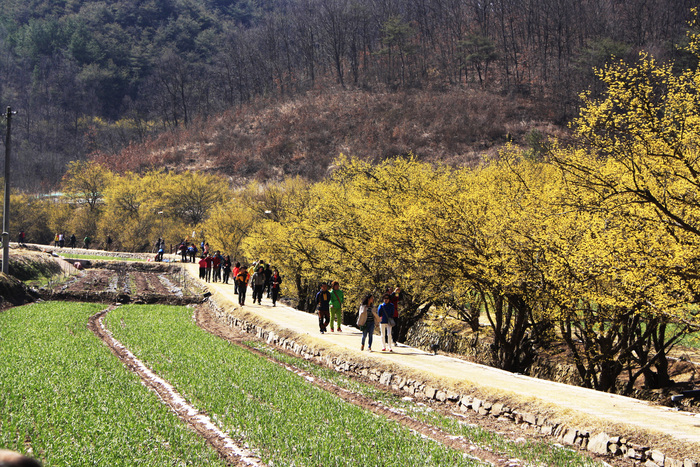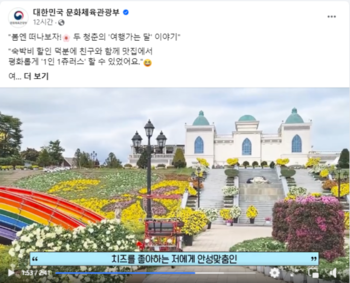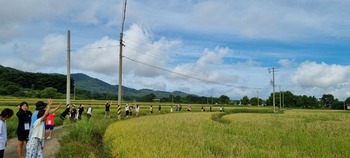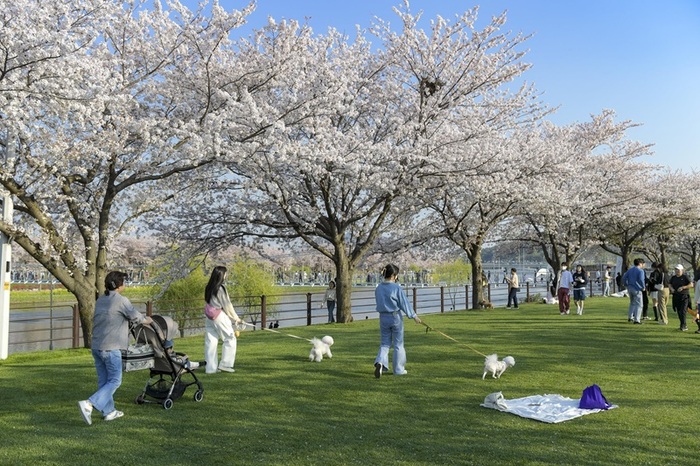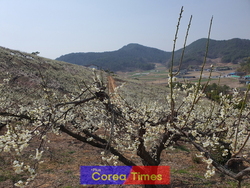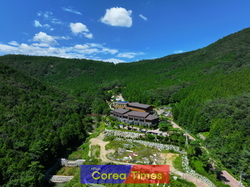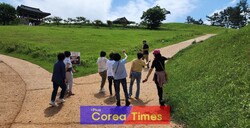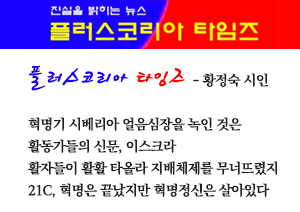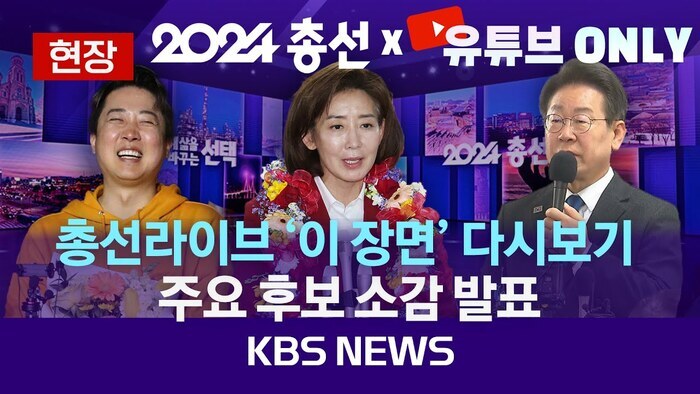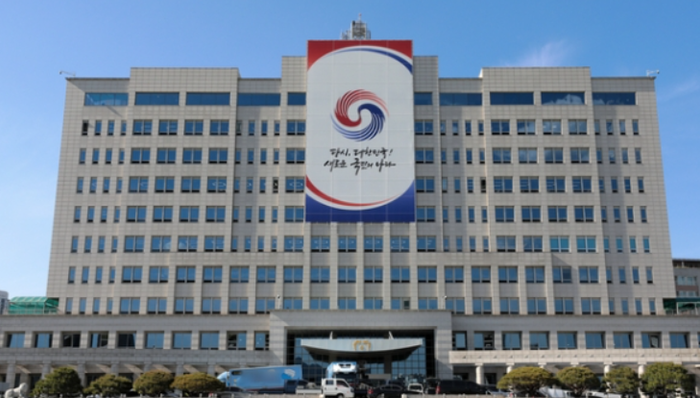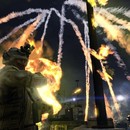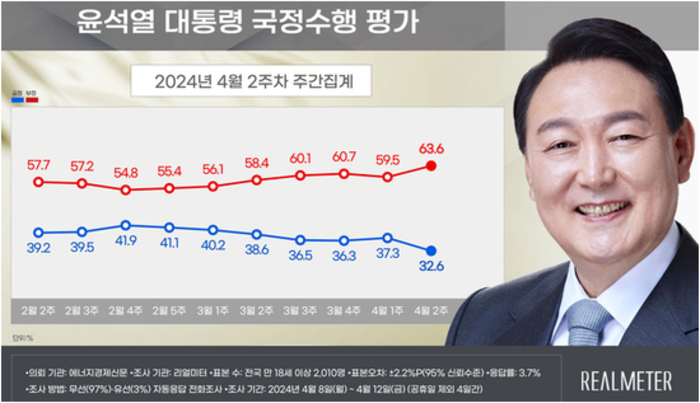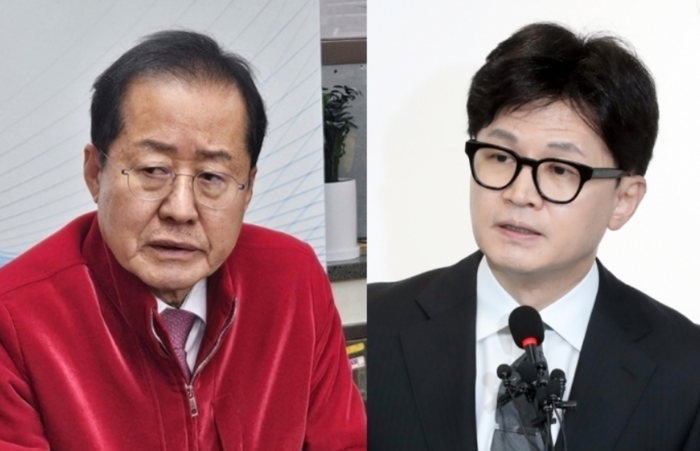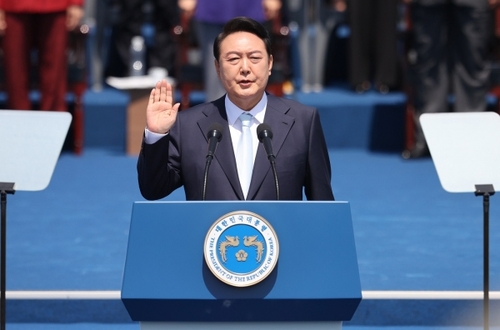|
[21세기 세계 주도의 핵심사상으로 일컬어지고 있는 홍익인간 사상에 관하여, 우리나라가 이제 지향해야 할 새로운 홍익인간 사상의 현대화 적용이론을 개발하여 제시하고자 한다. 본 내용은 임기추박사의 저서 “홍익인간 사상의 현대화 적용이론”(2022)을 60회로 나누어 연재한다. 편집자 주]
2) 재세이화의 국내적 주요 실천의무
재세이화의 국내적 주요 실현범위
일반적인 재세이화의 주요의무 이외에 앞으로 홍익인간 사상으로 재세이화의 길을 보완하는 것이 필요한 과제라고 하겠다. 또한 자유를 바탕으로 정의와 법의 우위를 유지하면서 인간을 위한 법, 인간다운 삶을 보장한 법제를 위해 향후 홍익인간 사상으로, 재세이화를 위한 방안을 보완하는 것도 법적 과제라고 하겠다(임기추, 2018; 2019). 이러한 헌법과 법률에 의거하여 대통령이나 지도자를 꿈꾸는 자라면 개인 수신과 국민의 의무, 국회의원이나 고위공직자의 의무, 대통령의 의무에 대해 준법의식 및 준수의식이 절대 중요하다고 강조할 수 있다. 또한 ‘재세이화’의 전제는 ‘성통・공완’ 즉, ‘도’를 깨우쳐야 하고 진정한 의미에서의 ‘홍익인간’의 성취이어야 한다는 점을 인식하는 것이 중요하다. 이러한 점을 전제로 대통령이라면 동시에 개인 수신과 국민의 기본의무, 국회의원 및 고위공직자의 의무, 대통령의 의무를 다 준수해야 하는 것이라고 강조할 나위가 없을 것이다.
홍익인간의 이상을 꿈꾸는 자로서 삼일신고의 수행이론에 입각한 마음(감정)・기(숨결)・몸(감각) 수행으로 성통을 완성한다면, 재세이화의 실현을 위해서 공완의 추가적 실현범위 인식이 중요하다. 개인 수신과 국민의 의무를 지키고 사회규범을 준수하며 여기에 시도지사나 국회의원 등의 의무를 준수하고, 나아가 대통령의 의무에 대한 준수가 확보될 수 있을 것이며, 이에 따라 홍익인간 세상이 실현될 수 있는 변화가 이루어질 것으로 기대가 가능해질 것이다.
재세이화의 시민사회적 주요 실천의무
사람은 사람이 되어야 할 사람의 도리에 관한 단동십훈의 내용을 소개한다. 단동십훈(檀童十訓)은 단군왕검의 훈시에 의거 전해 내려오는 것으로 당시 왕족들의 교육방식이라 한다. 십훈은 돐도 못된 어린 자손들에게 가르치던 10가지로 인간이 되어서 지켜야 할 도리를 가르친 것이다(유영만, 2011; 한국위키백과, 단동십훈, 2020). 단동십훈을 설명(유영만, 2011; 한국위키백과, 단동십훈, 2020)해 보면 다음과 같다.
1. 불아불아(弗亞弗亞) : 할아버지, 할머니들은 어린이의 허리를 잡고 세워서 좌우로 기우뚱 기우뚱하면서 <부라부라>라고 하면서, 귀에 익혀준다. 弗은 하늘에서 땅으로 내려온다는 뜻이고, 亞는 땅에서 하늘로 올라간다는 뜻을 말하며, 弗亞弗亞는 사랑으로 땅에 내려오고, 신이 되어 다시 하늘로 올라가는 무궁무진한 생명을 가진 어린이를 예찬하는 뜻이다. 2. 시상시상(詩想詩想) : 어린이를 앉혀놓고 앞뒤로 끄덕끄덕 흔들면서 <시상시상>하고 부른다. 사람의 형상과 마음과 신체는 태극과 하늘과 땅에서 받은 것이므로, 사람이 곧 작은 우주라는 인식아래 조상님을 거슬러 올라가면 인간 태초의 하느님을 나의 몸에 모신 것이니, 조상님과 하느님의 뜻에 맞도록 순종하겠다는 것을 나타내는 뜻이다.
3. 도리도리(道理道理) : 머리를 좌우로 돌리는 동작으로 천지에 만물이 무궁무진한 도리로 생겨났듯이 너도 도리로 생겨났음을 잊지 말라는 뜻이며, 대자연의 섭리를 가르치는 뜻이다. 4. 지암지암(持闇持闇) : 두 손을 앞으로 내놓고 손가락을 쥐었다 폈다하는 동작인데, 그윽하고 무궁한 진리는 금방 깨닫거나 알 수 없으니 두고두고 헤아려 깨달으라는 뜻이다. 5. 곤지곤지(坤地坤地) : 오른쪽 집게 손가락으로 왼쪽 손바닥을 찧는 동작으로 하늘의 이치를 깨달으면 사람과 만물이 서식하는 땅의 이치도 깨닫게 되어 천지간의 무궁무진한 조화를 알게 된다는 뜻이다. 6. 섬마섬마(西摩西摩) : 어린이를 세우면 서(立)라는 말로 섬마섬마라고 하는데, 서마도(西磨道)에 입각한 물질문명을 받아들이고 독립하여 정신과 물질에서 발전하라는 뜻이다.
7. 업비업비(業非業非) : 무서움을 가르치는 말로써 어릴 때부터 조상님들의 발자취와 하느님의 뜻에 삶을 살라는 뜻인데 자연 이치와 섭리에 맞는 업이 아니면 벌을 받게 된다는 뜻이다. 8. 아합아합(亞合亞合) : 손바닥으로 입을 막으며 소리내는 동작인데, 두손을 가로 모아 잡으면 亞자의 모양이 되어 이것은 천지 좌우의 형국을 이 몸속에 모신다는 것을 상징하는 뜻이다. 9. 짝짝궁짝짝궁(作作弓作作弓) : 두 손바닥을 마주치며 소리내는 동작으로 천지 좌우와 태극을 맞부딪쳐서 하늘에 오르고 땅으로 내리며, 사람으로 오고 신으로 가는 이치를 깨달았으니 손뼉을 치면서 재미있게 놀자는 뜻이다. 10. 질라아비훨훨의(地羅亞備活活議) : 나팔을 불며 춤추는 동작인데 천지 우주의 모든 이치를 깨닫고 지기(地氣)를 받아 생긴 육신을 活活(훨훨)하게 자라도록 즐겁게 살아가자는 뜻이다.
사회규범의 준수의무(임기추, 2018)를 보자면 누구나 사회규범을 준수하여야 하는 의무를 지니고 있다. 규범이란 인간이 사회생활을 하는 데에 있어, 구속(拘束)되고 준거(準據)하도록 강요되는 일정한 행동양식이나 행동규칙이라고 할 수 있는 것이다. 이러한 사회규범의 형태를 보면 의식주나 관혼상제 등의 관습, 어른 공경이나 효도 등의 도덕, 도로교통법이나 청소년보호법 등의 제도(법) 등이 있다. 이와 같이 사회규범은 사회구성원들이 사회생활에서 지켜야 할 행동의 기준이다. 이 사회규범은 공동체 내에서 발생할 수 있는 갈등과 분쟁을 예방하고 사회질서를 유지하기 위해 사회규범이 필요하다.
예를 들어, 의식주나 관혼상제 등과 같은 관습은 한 사회에서 오랫동안 지켜져 내려온 행동양식이 규범화된 것이고, 어른 공경이나 효도 등과 같은 도덕은 인간이 마땅히 지켜야 할 도리이다.여기서, 법과 도덕의 사례를 비교해 보면 교통 신호를 지키거나 성인 남성이 국방의 의무를 수행하는 것은 법에 해당하는 사례로, 이를 지키지 않을 때에는 국가로부터 일정한 제재를 받게 된다. 반면, 어른을 공경하거나 부모님께 효도하는 것은 도덕에 해당하는 사례로, 이를 지키지 않는다고 하여 제재를 받지는 않을 수 있다. 그렇지만 일반 국민이라면 누구나 사회에서 공동으로 또한 평화적으로 생활해 나가기 위해서는 일반적으로 받아들여지고 있는 규칙에 따르지 않으면 안되는 준수의무가 주어지고 있다.
국민의 기본의무(임기추, 2018)와 관련해 우리나라에서도 1948년 정부수립 이후 제1공화국 「헌법」으로부터 오늘에 이르기까지 국민의 기본적 의무에 관한 규정을 두고 있다. 1948년 7월 17일 공포된 제정 「헌법」에서는 제2장 ‘국민의 권리의무’에서 교육의 의무, 근로의 의무, 납세의 의무, 국토방위의 의무를 국민의 기본의무로 각각 규정하고 있다. 이후 제2・3・4공화국 「헌법」 역시 국민의 4대 기본의무로서 교육・근로・납세・병역의 의무를 명시하고 있으며, 제5공화국 「헌법」에서는 국민의 4대 의무 이외에 재산권행사의 공공복리적합의무와 환경보전의 의무를 규정하고 있다. 민주국가의 헌법에 있어서 납세 및 국방의 의무에 관한 조항은 그밖에도 주권자로서의 국민이 스스로 국가의 독립과 안전을 위하여 병력을 유지하고, 국가적 재정을 위하여 조세를 납부한다고 하는 적극적 의미를 아울러 가지고 있다.
특히, 20세기 헌법에 있어서 교육을 받게 할 의무, 근로의 의무 등은 사회국가・문화국가의 이념을 구현하고, 국민의 생존을 확보하기 위한 사회적 기본권을 실질화하는 의무로서의 성격을 지닌다. 헌법과 법률에 의해서 의무로 규정된 것만이 법적 의무이고, 따라서 기본적 의무라고 하는 것도 국가적 공동체를 형성하고 유지하기 위한 ‘국민’의 ‘실정법상’의 의무를 가리킬 뿐이다. 또한, 헌법이 국민의 의무를 법률로 정하게 하고 있는 경우에도 그 법률이 헌법상의 모든 원칙, 특히 인간의 존엄과 가치, 평등의 원칙, 법치주의 등에 위배되는 경우에는 그 법률은 위헌법률이 된다. 국민의 의무에는 민주국가 시민이면 누구나 당연히 이행하여야 할 민주적 시민의 일반적 의무와 헌법에 규정된 헌법상의 의무가 있다. 전체 국가적으로 인간의 의무라는 것은 존재하지 않지만, 헌법에 규정된 의무는 예시적인 것이지 열거적인 것이 아니므로, 헌법에 규정이 없는 것일지라도 자명한 것으로 생각되는 의무가 없지는 않다. 바로 조국에 대한 충성의 의무, 헌법옹호의 의무, 법률준수의 의무 등인데, 이러한 의무는 일종의 윤리적인 의무이다.
재세이화의 지도자적 주요 실천의무
홍익인간의 지도자적 입장에서는 시민사회적 주요의무를 비롯해서 추가적으로 시도지사나 국회의원 등의 의무를 준수하고, 나아가 대통령의 의무에 대한 준수가 확보될 수 있어야 할 것이다(임기추, 2018; 2019). 국회의원의 의무(임기추, 2018; 2019)는 다음과 같다. 국회의원은 법령을 제정, 비준, 개정 또는 폐지하고 국가의 예산안을 심의・확정하며 국정 운영을 감시하고 통제하는 국회의 권한 행사에 참여한다(대한민국 국회 홈페이지, 2020). 현대 정당민주주의 제도에서 국회의원들은 대부분 특정 정당(네이버지식백과, 정당, 2020)에 소속되어 정당의 의사결정에 참여하고 정당을 대외적으로 대표하는 역할을 담당한다.
따라서 국회의원은 국회 표결에 참여할 때도 국민의 대표자로서 소속정당의 의사에 얽매이지 말고 양심에 따라 투표하여야 하는 의무가 있다. 국민 전체의 대표이자 입법부의 구성원인 국회의원은 그 직무를 독립적이며 자유롭고 성실하게 수행할 수 있도록 일반 국민과는 다른 특권과 독자적인 권리, 그리고 의무를 부여받는다. 국회의원은 각종의 특권과 권리를 가지는 반면, 국민의 대표로서 국정심의에 전념하는 데 필요한 특별한 의무도 함께 지고 있다. 헌법과 국회법이 규정하고 있는 국회의원의 의무 사항은 다음과 같다. 즉, 1) 헌법 준수의 의무: 국회의원은 헌법을 준수하고 국민의 자유와 복리의 증진 및 조국의 평화적 통일을 위하여 노력하여야 한다. 2) 청렴과 국익 우선의 의무: 국회의원은 청렴하여야 하며 국가이익을 우선으로 하여 양심에 따라 성실히 직무를 수행하여야 한다. 3) 지위남용과 영리행위 금지의 의무: 국회의원은 그 지위를 남용하여 재산상의 권리와 이익 또는 직위를 얻을 수 없으며 다른 사람이 이를 얻도록 알선할 수 없다. 또한 국회의원은 소관 상임위원회의 직무와 관련한 영리행위를 하지 못한다.
4) 겸직금지 의무: 국회의원은 법률로 정해진 직을 겸할 수 없다. 즉, 대통령・헌법재판소 재판관・각급 선거관리위원회 위원・지방의회 의원, 정치활동이 허용되는 공무원을 제외한 국가공무원과 지방공무원, 정부투자기관 관리기본법 제2조에 규정된 정부투자기관의 임직원 등을 겸할 수 없다. 5) 기타 국회에서의 여러 의무: 국회의원은 품위를 유지하여야 하며, 본회의와 위원회에 출석하여야 하고, 의사에 관한 법규를 준수하여야 한다. 국회의원은 회의장의 질서를 문란하게 하거나 회의장에서 다른 사람을 모욕할 수 없다. 또한 국회의원은 다른 사람의 발언을 방해할 수 없으며, 의장의 질서유지에 관한 명령에 복종하여야 한다. 국회의원이 이와 같은 의무를 이행하지 않은 경우에는 징계 대상이 될 수 있다.
시도지사의 의무(임기추, 2018; 2019)는 다음과 같이 소개할 수 있다. 시도지사는 임기중 당해 지방자치단체와 영리를 목적으로 거래를 하거나 지방자치단체와 관계있는 어떠한 영리사업도 할 수 없으며, 국회의원이나 지방의회의원, 또는 기타 대통령령으로 정하는 직을 겸임할 수 없다. 시도지사는 시도를 대표하고, 그 사무를 통할하며, 소속직원을 지휘・감독하고 임면・교육훈련・복무・징계 등에 관한 사항을 처리한다. 또한 국가로부터 위임된 사무를 관리・집행한다. 직선제로 시도지사가 선출될 경우 시도지사는 그 권한을 중앙정부로부터 위임받는 것이 아니라 국민으로 부터 위임받음으로써 중앙정부에의 의존성과 예속성을 탈피하여 협조체제를 이룰 수 있다.
대통령의 의무(임기추, 2018; 2019)를 약술하면 다음과 같다. 제헌(1948년 제정)에서부터 현행 헌법(1987년 개정)에 이르기까지 정부형태가 변경될 때마다 대통령의 헌법상의 지위도 변천해 왔다. 현행 헌법상의 대통령제는 입법부 및 사법부에 대한 상대적 우월성을 보장하고 있을 뿐만 아니라, 긴급명령권・헌법개정제안권・국민투표부의권 등 일련의 비상권한도 부여하고 있다. 현행 헌법에 있어서 대통령은 국가원수로서의 지위와 행정부 수반으로서의 지위를 겸하고 있다. 국가원수로서의 지위는 대외적으로 국가를 대표하는 지위, 국가와 헌법의 수호자로서의 지위, 국정의 통합・조정자로서의 지위, 다른 헌법기관 구성자로서의 지위로 세분한다.
행정부 수반으로서의 지위는 행정의 최고지휘권자・최고책임자로서의 지위, 행정부 조직권자로서의 지위, 국무회의의 의장으로서의 지위로 세분한다. 현행 헌법상 대통령이 행사하는 권한은 그 실질적인 성질에 따라 비상권한, 다른 헌법기관을 구성할 권한, 행정에 관한 권한, 국회와 입법에 관한 권한, 사법에 관한 권한 등으로 분류할 수 있다. 비상권한으로 긴급처분・명령권(76조)과 계엄선포권(77조) 및 국민투표부의권(72조) 등이다. 행정에 관한 권한으로는 행정에 관한 최고의 결정권과 지휘권, 법률집행권, 국가의 대표 및 외교에 관한 권한, 정부구성권, 공무원임면권, 국군통수권, 재정에 관한 권한, 영전수여권 등을 들 수 있다. 국회와 입법에 관한 권한으로는 국회임시회의 집회요구권, 국회출석발언권, 헌법개정에 관한 권한, 법률안 제출권과 그 거부권 및 공포권, 명령제정권 등을 들 수 있다.사법에 관한 권한으로는 위헌정당해산제소권, 사면・감형・복권에 관한 권한 등을 들 수 있다. 대통령의 권한행사는 문서의 형식으로 하여야 할 뿐만 아니라 그 문서에는 국무총리와 관계되는 국무위원의 부서(副署)가 있어야 유효한 것이다. 대통령의 헌법상의 의무로는 직무에 관한 의무와 겸직금지의 의무 등이 있다. 직무에 관한 의무로는 헌법을 준수할 의무, 국가를 보위할 의무, 조국평화 통일에 대한 의무, 국민의 자유・복리를 증진할 의무, 민족문화를 창달할 의무 등을 들 수 있다.
우리는 홍익인간 사상의 후예로서 홍익경전의 하나인 삼일신고의 수행이론에 입각한 마음(감정)・기(숨결)・몸(감각) 수행을 통해 성통이 완성된다면, 재세이화의 실현을 위해서 국민의 의무를 지키고 사회규범을 준수하여야 한다. 여기에 시도지사나 국회의원 등의 의무를 준수하고, 대통령의 의무에 대한 준수가 확보될 수 있을 것이며, 나아가 법적・제도적 제정・개정을 통한 보완과정으로 홍익인간 세상이 실현될 수 있는 실질적 변화가 되리라고 기대한다.
*필자/임기추
홍익경영전략원 경영학박사・원장/유튜브 홍익나라(https://www.youtube.com/channel/UCp77kpD3e2PDSg6OHI8LJTw) 채널운영자(tranlim@hanmail.net).
*아래 영문은 위 기사를 '구글 번역'으로 번역한 [기사전문]입니다. 영문 번역에 오류가 포함되어 있을 수 있음을 전제로 합니다. *The English below is the [full text] of the article translated by 'Google Translate'. It is assumed that the English translation may contain errors.
[Regarding Hongik Ingan Ideology, which is said to be the core ideology leading the world in the 21st century, I would like to develop and present a theory of modernization application of the new Hongik Ingan ideology that Korea should now pursue. This article is a series of 60 episodes of Dr. Lim Ki-chu’s book “Modernization Theory of Hongik Ingan Ideology” (2022, Kyobo Purple). Editor's Note]
[Modernization Theory of Hongik Ingan Ideology -20] Major Domestic Realization Scope of Jaeseihwa
2) Key Domestic Practice Obligations of Jaeseihwa
Major Domestic Realization Scope of Jaeseihwa
In addition to the main duties of general Jaeseihwa, it is a necessary task to supplement the path of Jaeseihwa with Hongik Ingan ideology in the future. In addition, it is legal to supplement the plan for Jaeseihwa with Hongik Ingan ideology in the future for a legal system that guarantees a law for human beings and a life worthy of human beings while maintaining the primacy of justice and law based on freedom. I will call it a task (Im Ki-chu, 2018; 2019). Based on these constitutions and laws, anyone dreaming of becoming a president or leader can emphasize the absolute importance of a sense of compliance and a sense of compliance with the duties of individuals, citizens, members of the National Assembly or high-ranking public officials, and the duties of the president. Also, it is important to recognize that the premise of 'Jaeseihwa' is to realize 'Seongtong・Gongwan', that is, 'The Tao', and to achieve 'Hongik Ingan' in the true sense. It is important. Based on this premise, there is no point in emphasizing that the president must abide by the basic duties of the public, the duties of members of the National Assembly and high-ranking officials, and the duties of the president at the same time.
As a person who dreams of the ideal of Hongik Ingan, if you complete Seongtong through the practice of mind (emotion), qi (breath), and body (senses) based on the performance theory of Samil Shingo, Jaeseihwa is realized. For this, it is important to recognize the additional scope of realization of Gongwan. It will be possible to observe the duties of individuals and citizens, comply with social norms, comply with the duties of provincial governors and members of the National Assembly, and furthermore, comply with the duties of the president. It will be possible to expect that a change that can be realized will be made.
Jaeseihwa's Key Civil Society Obligations
Introduces the contents of the Ten Commandments of Dandong regarding the duty of a person to be a person. Dandong Sihun (檀童十訓) is handed down based on the teachings of Dangun Wanggeom, and is said to be the educational method of the royal family at the time. Ten huns are 10 things that were taught to young descendants who were not even 1 year old, and they taught the morals to be followed as human beings (Yoo Young-man, 2011; Korean Wikipedia, Dandong 10 huns, 2020). The description of the Ten Commandments of Dandong (Yoo Young-man, 2011; Korean Wikipedia, Ten Commandments of Dandong, 2020) is as follows.
1. Bul-a-bul-a (弗亞弗亞): Grandparents hold the child by the waist, stand it upright, and while tilting it from side to side, say while learning it by ear. Bull (弗) means descending from heaven to earth, and a (亞) means ascending from earth to heaven. It means praising children. 2. Sangsangsangsang: Have the children sit down and shake them back and forth while singing . Man's image, mind, and body were received from the Taegeuk, heaven, and earth, so if we go back to our ancestors under the understanding that man is a small universe, then we have the God of the beginning of human beings in our body. means to indicate
3. Doridori (道理道理): Turning the head to the left and right, it means that you should not forget that you were born as a dori, just as all things in the heavens and earth were created through an inexhaustible dori, and teaches the providence of Mother Nature. 4. Jiamjiam (持闇持闇): This is a gesture of putting both hands forward and opening and closing the fingers. 5. Gonjigonji (坤地坤地): If you realize the principle of the sky by pounding your left palm with your right index finger, you will also realize the principle of the earth where people and all things live, and you will know the infinite harmony between heaven and earth. 6. Seomma Seomma (西摩西摩): When raising a child, it is called Seomma Seomma, which means to accept material civilization based on Seomado (西磨道) and develop independently in spirit and matter.
7. Upbi-upbi (業不業不): This is a word that teaches fear. 8. Ahab Ahab (亞合亞合): It is a gesture of making a sound while covering the mouth with the palms. When the hands are held horizontally, it becomes the shape of the character 亞, which symbolizes that the shapes of the left and right sides of the heavens and earth are kept in this body. 9. Jjakjjakgungjjakjakgung (作作弓作作作弓): With two palms facing each other and making a sound, the heavens and the earth and the left and right Taegeuk collide to ascend to the sky and descend to the earth. It means to have fun. 10. Jillaabi Whirling (地羅亞備活活議, 질라아비훨훨의): It is a dance movement while blowing the trumpet, and it means to realize all the principles of the heavens and the earth, and to live joyfully so that the body created by receiving the earth's energy can grow.
Looking at the duty to comply with social norms (Lim Ki-chu, 2018), everyone has the duty to abide by social norms. A norm can be said to be a certain pattern of behavior or behavioral rules that humans are constrained and compelled to abide by in social life. In the form of these social norms, there are customs such as food, clothing and shelter, ceremonial occasions, morals such as respect for elders and filial piety, and systems (laws) such as the Road Traffic Act and the Youth Protection Act. As such, social norms are standards for behavior that members of society must abide by in social life. These social norms are necessary to prevent conflicts and disputes that may occur within a community and to maintain social order.
For example, customs such as food, clothing and shelter, ceremonial occasions, etc., are standardized behavior patterns that have been observed for a long time in a society, and morals such as respect for elders and filial piety are the moral principles that humans must abide by. Here, comparing cases of law and morality, obeying traffic signals or performing the duty of national defense by adult males are cases corresponding to the law, and when they are not obeyed, they are subject to certain sanctions from the state. On the other hand, respecting elders or being filial to one's parents is a case of morality, and may not be subject to sanctions for non-compliance. However, all citizens are obliged to abide by the generally accepted rules in order to live a peaceful and common life in society.
Regarding the basic obligations of the people (Im Ki-chu, 2018), Korea also has regulations on the basic obligations of the people from the Constitution of the 1st Republic since the establishment of the government in 1948 to today. The 「Constitution」 promulgated on July 17, 1948 stipulates the duty to educate, the duty to work, the duty to pay tax, and the duty to defend the homeland as basic duties of the citizens in Chapter 2, ‘Rights and Duties of the People’. Later, the 「Constitution of the 2nd·3·4th Republic」 also stipulates the 4 basic duties of the people: education, work, tax payment, and military service. The 「Constitution」 of the 5th Republic stipulates the duty of public welfare in exercising property rights and the duty of preserving the environment in addition to the four major duties of the people. In the constitution of a democratic country, the provision on tax payment and national defense obligations also has a positive meaning that the people as sovereigns voluntarily maintain military forces for national independence and security and pay taxes for national finance.
In particular, the duty to receive education and the duty to work in the 20th century constitution have the characteristics of realizing the ideology of a social state and a cultural state and realizing basic social rights to secure the survival of the people. Only what is prescribed as a duty by the Constitution and the law is a legal duty. Therefore, even the basic duty refers only to the 'national law' duty of the 'people' to form and maintain a national community. In addition, even if the Constitution stipulates the duties of citizens as laws, if the laws violate all constitutional principles, especially human dignity and values, the principle of equality, and the rule of law, the laws become unconstitutional. Citizens' duties include the general duties of democratic citizens, which all citizens of a democratic country must fulfill, and the constitutional duties stipulated in the Constitution. There is no such thing as a man's duty as a whole, but the duties prescribed in the Constitution are illustrative, not enumerative. Therefore, even if the Constitution does not provide for it, it is not without obligations that are considered self-evident. It is the duty of loyalty to the motherland, the duty to protect the constitution, and the duty to obey the law. These duties are a kind of ethical duty.
Jaeseihwa's Main Duty as a Leader
In the leadership position of Hongik Ingan, in addition to major civil society duties, additional duties such as governors and members of the National Assembly must be observed. Furthermore, compliance with the presidential duties should be ensured (Im Ki-chu, 2018; 2019). The duties of members of the National Assembly (terms added, 2018; 2019) are as follows. Members of the National Assembly participate in exercising the authority of the National Assembly to enact, ratify, amend or abolish laws, deliberate and finalize the national budget bill, and monitor and control the operation of state affairs (Korea National Assembly website, 2020). In the modern party democracy system, most members of the National Assembly belong to a specific political party (Naver Knowledge Encyclopedia, political party, 2020), participate in the party's decision-making, and play the role of representing the party externally.
Therefore, when members of the National Assembly participate in voting in the National Assembly, as representatives of the people, they are obliged to vote according to their conscience and not be bound by the will of their party. Representatives of the entire people and members of the legislative branch, members of the National Assembly, are endowed with privileges, independent rights, and duties different from those of the general public so that they can perform their duties independently, freely, and faithfully. While members of the National Assembly have various privileges and rights, they also have special duties necessary to devote themselves to deliberating state affairs as the representative of the people. The duties of members of the National Assembly as stipulated in the Constitution and the National Assembly Act are as follows: In other words, 1) there is an obligation to abide by the Constitution. Members of the National Assembly shall abide by the Constitution, promote the freedom and welfare of the people, and strive for the peaceful reunification of the country. 2) There is an obligation to put integrity and national interests first. Members of the National Assembly must be clean and faithfully perform their duties in accordance with their conscience, giving priority to the national interest. 3) There is an obligation to prohibit abuse of position and profit-making activities. Members of the National Assembly may not abuse their position to obtain property rights, interests, or positions, and may not arrange for others to obtain them. In addition, members of the National Assembly shall not engage in commercial activities related to the duties of the relevant standing committee.
4) There is an obligation to prohibit holding concurrent positions. Members of the National Assembly cannot concurrently hold offices prescribed by law. In other words, the President, the judge of the Constitutional Court, the member of the election management committee at each level, the member of the local council, the national and local public officials excluding public officials permitted to engage in political activities, and the executives and employees of the government-invested institution stipulated in Article 2 of the Framework Act on the Management of Government-Invested Institutions. can't 5) There are various other duties in the National Assembly. Members of the National Assembly must maintain their dignity, attend plenary sessions and committees, and abide by the laws and regulations regarding decisions. Members of the National Assembly cannot disturb the order of the conference hall or insult others in the conference hall. In addition, members of the National Assembly cannot interrupt the speech of others, and must obey the order of the Speaker regarding the maintenance of order. Members of the National Assembly may be subject to disciplinary action if they do not fulfill these duties.
The duties of the provincial and provincial governors (term Kichu, 2018; 2019) can be introduced as follows. During the term of office, governors of cities and provinces may not engage in commercial transactions with local governments or engage in any commercial business related to local governments. She may not concurrently hold a member of the National Assembly, a member of a local council, or any other position prescribed by Presidential Decree. The provincial and provincial governors represent the provincial and provincial governments, supervise the administrative affairs, direct and supervise the employees under their control, and handle matters related to appointment and dismissal, education and training, service, and disciplinary actions. It also manages and executes duties entrusted by the state. If the provincial and provincial governors are elected directly, the provincial and provincial governors are not delegated from the central government, but from the people, so that they can break away from dependence and subordination to the central government and form a cooperative system.
The following summarizes the duties of the President (term of office, 2018; 2019): Whenever the form of government has changed, from the constitution (enacted in 1948) to the current constitution (revised in 1987), the constitutional position of the president has also changed. The current constitutional presidential system not only guarantees relative superiority over the legislature and the judiciary, but also grants a series of emergency powers, such as the right to make emergency orders, the right to propose constitutional amendments, and the right to veto a referendum. Under the current Constitution, the president holds both the position of head of state and the position of head of the executive branch. The position of head of state is subdivided into the position of representing the state externally, the position of guardian of the state and the constitution, the position of integrator and coordinator of state affairs, and the position of constituent of other constitutional institutions.
The position of the head of the executive branch is subdivided into the position as the highest commanding authority/chief executive officer, the position as the authority to organize the administration, and the position as the chairman of the State Council. The powers exercised by the President under the current Constitution can be classified into emergency powers, powers to form other constitutional institutions, powers over the administration, powers over the National Assembly and legislation, and powers over the judiciary, depending on their actual nature. Emergency powers include the right to take emergency measures and orders (Article 76), the right to declare martial law (Article 77), and the right to reject a national referendum (Article 72). Administrative authority includes supreme decision-making and command authority, law enforcement authority, national representation and diplomatic authority, government formation authority, the authority to appoint and dismiss civil servants, the authority to command the Armed Forces, the authority over finances, and the right to transfer a passport.
The powers related to the National Assembly and legislation include the right to demand assembly at an extraordinary meeting of the National Assembly, the right to speak at the National Assembly, the right to amend the Constitution, the right to submit bills and the right to veto and promulgate them, and the right to issue orders. Judicial authority includes the right to sue for the dissolution of an unconstitutional political party, and the right to amnesty, commutation, and reinstatement. The exercise of authority by the President must not only be in the form of a document, but it is valid only when the document contains the department of a member of the State Council related to the Prime Minister. The President's constitutional duties include duties related to duties and duties prohibiting concurrent office. Duty-related duties include the duty to abide by the Constitution, the duty to defend the country, the duty to peacefully unify the motherland, the duty to promote the freedom and welfare of the people, and the duty to promote national culture.
As descendants of Hongik Ingan, if sexual pain is completed through the practice of mind (emotions), qi (breath), and body (senses) based on the performance theory of the Samil Singo, one of the Hongik scriptures, For the realization of Jaeseihwa, we will keep our civic duty and abide by social norms. Here, compliance with the obligations of city and provincial governors and members of the National Assembly and compliance with the duties of the president will be secured. Furthermore, it is expected that the supplementary process through legal and institutional enactment and revision will lead to practical changes that can realize the world of Hongik Ingan.
*Writer/Lim Ki-chu
Doctor of Business Administration, Hongik Institute for Management Strategy & Director/YouTube Hongik Nara Channel Operator (tranlim@hanmail.net). <저작권자 ⓒ pluskorea 무단전재 및 재배포 금지>
홍익경영전략원 원장・경영학박사, 홍익사상학자 / 유튜브 홍익나라 채널운영자 / 단군정신선양회 학술위원 / 전 에너지경제연구원 연구위원 / 전 행정안전부 시도합동평가단 평가위원 / 전 국무총리 기후변화협약대책위원회 평가위원 / 전 대통령자문 지속가능발전위원회 전문위원 / 전 대통령직속 민주평화통일자문회의 자문위원 / 홍익인간 사상관련 50여권의 저서 및 11편의 학술논문 발표

hongikingan, hongik ingan, jaeseihwa, 홍익인간, 재세이화, 관련기사목록
|
임기추 홍익사상
많이 본 기사
|



